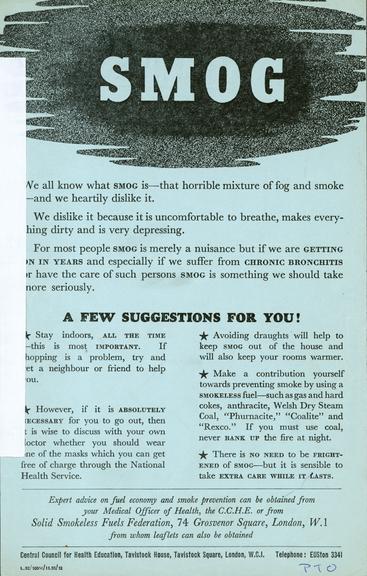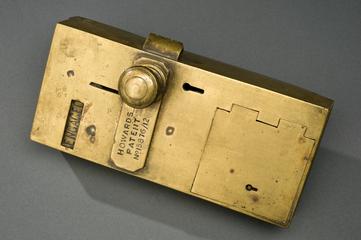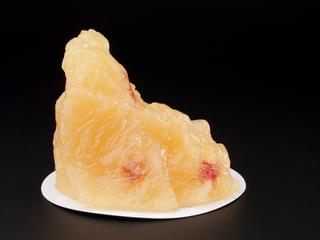
Leaflet relating to smog, London, England, c. 1950-1955

Leaflet giving information about precautions to take on the appearance of smog pollution, produced by the Central Council for Health Education, London, England, c. 1950-1955
London was often hidden under noxious fog called 'smog' from the first half of the 1800s onwards. Londoners nicknamed thick smog as a ‘pea souper’. Visibility could be reduced to a few feet in the early 1950s. Smog arises when smoke and pollutants which would normally ascend into the atmosphere become trapped by colder air above them. This layer of polluted air mixes with water droplets to form a dense, murky and potentially poisonous fog. It was a particular problem in industrialised areas such as London. This was because of coal burnt in domestic homes and by industry. Smog could be deadly as well as inconvenient. Heavy London smog in 1952 is believed to have killed over 4,000 over a four day period. Death was mainly from respiratory problems.
The Central Council for Health Education leaflet gave precautions to take when smog pollution appeared. The Clean Air Acts of 1956 and 1968 were introduced to combat smog. They banned black smoke emission and insisted urban dwellers use smokeless fuels.
Details
- Category:
- Public Health & Hygiene
- Object Number:
- 1999-242/6
- Materials:
- paper
- Measurements:
-
overall: 220 mm x 140 mm
- type:
- leaflet




